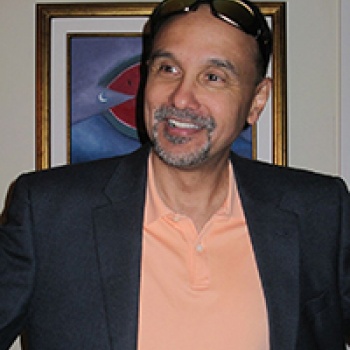Christopher Rose

- MIT Sponsors:
- Wesley Harris, Department of Aeronautics and Astronautics
- Scholar Link:Visit Christopher Rose's faculty page
- Scholar Link:View Christopher Rose's publications
Through our scientific and technological genius, we've made of this world a neighborhood. And now through our moral and ethical commitment, we must make of it a brotherhood.
Background
Christopher Rose is a professor of electrical and computer engineering at Rutgers University and a founding member of WINLAB. He earned his SB, SM, and PhD in electrical engineering and computer science from MIT.
Interests
Rose’s research interests have included novel mobile communications networks, applications of genetic algorithms to control problems in communications networks and interference avoidance methods using universal radios to foster peaceful coexistence in what will be the wireless ecology of the 5GHz U-NII bands. As an outgrowth of research on opportunistic communications, he also considers the details of a problem everyone has wondered about at one time or another: how will our first extraterrestrial civilization contact occur?
Rose’s current passion is thinking about ways to make the under-represented minority (URM) STEM professoriat dramatically larger by developing academic cohorts whose technical breadth, social consciousness and natural cohesion (all typical URM characteristics) can provide an especially keen vantage point from which to formulate and attack high-profile, high impact problems of great interest to society.
Sample Work
Publication
Guest Editorial Series on Molecular, Biological, and Multiscale Communication
Eckford, A.W. Krishnaswamy, D. Paluh, J.L. Rose, C. “Guest Editorial Series on Molecular, Biological, and Multiscale Communication.” IEEE Journal on Selected Areas in Communication, vol. 32, no. 12, 2014, pp. 2313-2314.
Publication
Signaling with Identical Tokens: upper bounds with energy constraints
Christopher Rose, Ismat Saira Mian. “Signaling with Identical Tokens: upper bounds with energy constraints.” IEEE International Symposium on Information Theory, 2014, pp. 1817-1821.
Publication
Signaling with identical Tokens: lower bounds with energy constraints
Christopher Rose, Ismat Saira Mian. “Signaling with identical Tokens: lower bounds with energy constraints.” IEEE International Symposium on Information Theory, 2013, pp. 1839-1843.